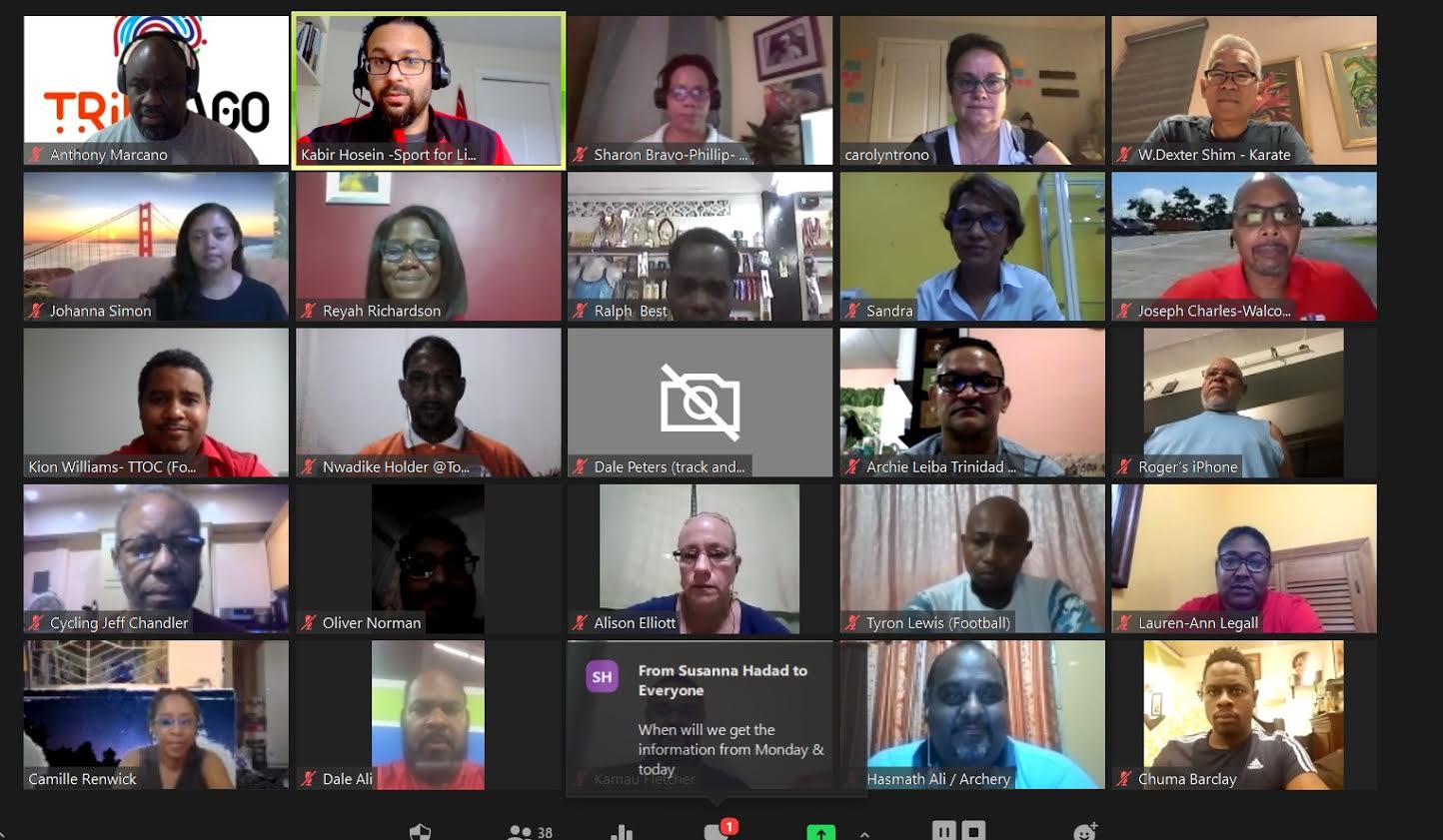Trinidad and Tobago industry professionals reaffirm commitment to Long-Term Development with web series

The Trinidad and Tobago Olympic Committee (TTOC) is committed to making Long-Term Development the industry standard for their sport system, and recently teamed up with Sport for Life to put on a six-part web series available to industry professionals. Aimed at addressing identified gaps in their athlete pathways, the Zoom meetings were ultimately a well-attended success.
Reflecting on the experience, TTO Olympic Committee Secretary General Annette Knott said this latest collaboration is just the latest development in a relationship that’s been growing since Caribbean Association of National Olympic Committees (CANOC) participated in a Sport for Life pilot project in 2015. She’s thrilled to see the relationship flourishing.
“With the COVID-19 pandemic forcing all of us to rethink how we operate, the TTOC grasped this opportunity to upgrade our coaching education and use the additional time afforded to all at home to upgrade skills. The webinars introduced the concepts to some and to many they became a welcomed refresher course on Long-Term Development,” she said.
“Thanks to the experts from Sport for Life and our team here on the ground in Trinidad and Tobago, Anthony Marcano and Kion Williams, we are renewed and refreshed in our motivation and vision for ensuring that our sport, education and health systems acknowledge, encourage and integrate. the concepts of Long Term Development as a way of life.”
Addressing drop-out at the Train to Train stage
Sharon Bravo-Phillip knew what she needed to learn before even signing up for the webinar.
Earlier this year, the Trinidad and Tobago (TTO) Gymnastics trustee and public relations officer registered for Sport for Life’s Zoom six-part series on how to properly implement Long-Term Development into her sport organization. She’d already identified a problem within their structure she wanted to address: there seemed to be an unusually high drop-out rate at the Train to Train stage. She wanted to understand the issue better so that she could help keep the athletes engaged.
“I believe in continuous learning, so I participated in the Long-Term Development webinar. I was hoping to get an overview based on the data as to why this drop off at the Train to Train stage was happening, and most importantly recommended steps to correct it or prevent it from happening,” she told Sport for Life.
“I truly appreciated and enjoyed all the selected instructors as they shared their knowledge and experience on the topic. The webinar helped immensely by identifying the gaps I have to address as a coach and then also as an organization to truly ensuring physical literacy is a part of every program.”
The class also clarified her thinking about one of the issues TTO is facing: the lack of supportive community infrastructure. Seeing the juxtaposition of some of the sport programs in Canada and comparing them to the existing ones in her country made for a stark comparison. On the other hand, fun exercises and ice-breakers “reminded us of our rich culture that we sometimes take for granted because it is what we are used to.”
Keeping kids active without breaking the bank
The webinar was delivered by Long-Term Development expert Adam Decker, with support from Sport for Life team members such as facilitator Drew Mitchell and Kabir Hosein – who is also from TTO – as well as Carolyn Trono and Tom Jones. With nearly 100 attendees at each webinar so far, the series has proven to be a hit in the Caribbean. Decker has worked with sport organizations all over the world, but said it was an exciting new experience to be exposed to TTO culture.
“It was refreshing to hear that a lot of the issues they were having to establish Long-Term Development were similar to issues we’ve faced in Canada. Their culture in TTO is different but in the big picture we’re looking at similar themes in terms of the system challenges that were taking place,” said Decker.
“We spent a lot of time talking about the high rates of athletes dropping out, and the reasons are the same in TTO and Canada — things like coaches focusing too much on winning rather development, not enough time for school or a social life, and too much training that leads to mental and physical burn-out.”
Decker covered daily monitoring strategies, sensitive periods of training, and organizational issues that can lead to athlete disengagement. A common theme was how to accomplish some of the loftier goals on a shoe-string budget.
“The financial barriers came up a lot. That exists in Canada as well, but it’s amplified in TTO, and that’s not something you would naturally assume. I think many people picture it as this glamorous and wealthy place, but that’s not necessarily always the case. So we discussed solutions and alternatives that will give them the ability to keep kids active without having to break the bank.”
Two of the elements that made the web series successful, according to Sport for Life’s Senior Manager of Operations and Newcomers Engagement Kabir Hosein, was that facilitators used examples from TTO while using an interactive PDF guidebook that participants could fill out and make relevant to their operating context.
“In each module the facilitator would give a Canadian or theoretical example, then I would add a TTo example and in some cases I asked participants to unmute themselves and add to it, which added a local flavour to the classes that I think was appreciated.”
